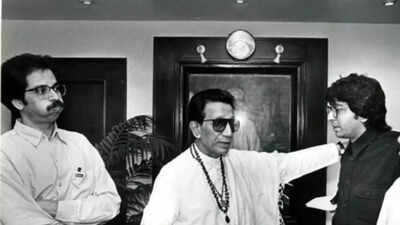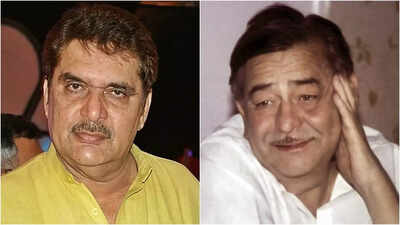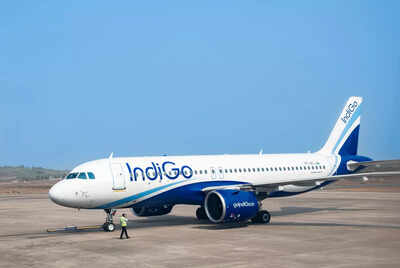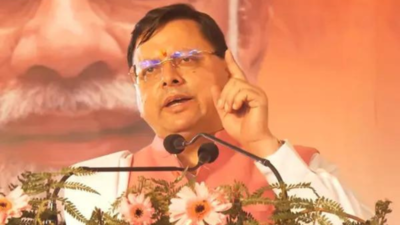Thackeray & sons: What led to Uddhav-Raj reunion after 20 years? A ‘Marathi Manoos’ power play | India News

NEW DELHI: “What Balasaheb Thackeray could not do, chief minister Fadnavis has managed to do.” This is what Raj Thackeray said as he shared the stage with his estranged cousin Uddhav Thackeray after almost twenty years.This came after both parties – MNS and Shiv Sena (UBT) – took credit for compelling the Devendra Fadnavis-led Maharashtra government to roll back its decision to introduce Hindi as a third language from Class 1 in government schools.During the victory rally held in Mumbai, Uddhav also hinted at an alliance with MNS for the upcoming local body elections, especially the Brihanmumbai Municipal Corporation election, likely to be held later this year.“We have come together to stay together,” Uddhav Thackeray said while addressing the gathering.“Since we announced this program, everyone was eagerly waiting for our speech today, but in my view, us coming together on this stage was more important than our speeches. Raj has already given a very outstanding speech, and I think there is no need for me to speak now,” he added.Earlier, Uddhav had also hinted at the possibility of an alliance with Raj, saying, “I am ready to come together (with Raj Thackeray). I am ready to come forward in the interest of Maharashtra, keeping aside minor incidents. I have put an end to all fights. The interest of Maharashtra is my priority.”Raj Thackeray echoed a similar sentiment, saying that “coming together is not difficult” and that differences between cousins are “proving costly for the existence of Maharashtra and Marathi people.”
What led to the Thackeray reunion
The Fadnavis government had issued a Government Resolution (GR) on April 16, making Hindi a compulsory third language for students in Classes 1 to 5 studying in English and Marathi medium schools.Since the announcement, both parties had opposed its implementation. Sena (UBT) and MNS called the policy an indirect imposition of Hindi. Uddhav said that the decision was similar to the Emergency, while Raj urged schools not to follow the government order, calling the imposition of Hindi an “anti-Maharashtra activity.”The fierce opposition eventually compelled the government to retreat from its decision on June 29.The government also announced the formation of a committee under educationist Dr. Narendra Jadhav to suggest the way forward and oversee the implementation of the language policy.The panel has been given three months to study the issue and prepare a report.The three-language policy has now snowballed into a “Marathi identity” crisis, which has led to political workers threatening those who speak Hindi in the state.
Upcoming local body elections
Many cities, including Mumbai, in Maharashtra are set to go to the polls for local bodies soon. With the coming together of MNS and Shiv Sena (UBT), there is now a better chance of halting the BJP’s winning momentum jointly than by contesting separately.Both Sena (UBT) and MNS are “natural allies”. They derive their political legacy from Shiv Sena, founded by the late Bal Thackeray, which was rooted in Marathi identity. Since then, the emotive issue of Marathi pride has remained central to both parties.Since launching the MNS in 2006, Raj Thackeray has leaned heavily on an anti-North India stance as his political trademark. Uddhav, meanwhile, has championed the “Marathi manoos” narrative to advance his agenda. Both parties performed poorly in the assembly elections held last year. Ahead of the local body elections, the issue of Marathi identity – through opposition to the imposition of Hindi – has given both parties renewed energy to ignite Marathi pride among the people.
Maharashtra assembly elections
During the assembly elections, both Shiv Sena (UBT) and MNS suffered heavy losses. While Sena (UBT) managed to win only 20 seats out of the 92 it contested, MNS, while fighting alone, suffered an even greater blow, losing all 135 seats it contested.Meanwhile, Eknath Shinde, who split from the Shiv Sena founded by Balasaheb Thackeray, won 57 seats and formed the government in alliance with the Bharatiya Janata Party.In Maharashtra assembly elections, the BJP-led Mahayuti alliance secured a substantial victory, winning 235 seats in the 288-member assembly. On the other hand, it was a disappointing show by the Maha Vikas Aghadi (MVA), which was hoping for a grand comeback. Uddhav’s Sena got 20 seats, Congress 16 and Sharad Pawar’s NCP secured 10 seats.






